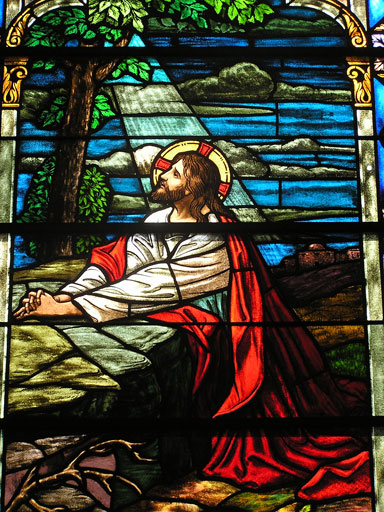With the controversy over Dan Brown’s novel The Da Vinci Code reaching a high pitch as the release of Ron Howard’s film version nears release, one can hardly turn on the television without hearing the debate about whether the “Holy Grail” was the cup of the Last Supper mentioned in the Gospel of Matthew 26:27, Gospel of Mark 14:23, and Gospel of Luke 22:20, or was actually Mary Magdalene in her purported role as wife to Jesus and mother of his child or children.
But, does this debate really mean anything for the spiritual truth of Jesus’ last days, or are both sides materialist distractions from the real message? If we speak of a Divine Vessel, are either the womb of Mary or the chalice of the Last Supper up to the task?
The important cup of Jesus’ final days was neither the physical cup passed around the table at the Last Supper, nor the symbolic vessel of Mary Magdalene’s maternity even if she actually were his child-bearing wife. The cup of Gethsemane, the cup of ultimate sacrifice which Jesus in prayer asks to be taken away but then immediately accepts, is the truly important vessel. Appropriate to one who taught by way of parables, it is a metaphorical cup pointing to the spiritual reality that underlies our material world.
The Divine Vessel holds not a dram of symbolic wine nor the seed of a royal bloodline, but the absolute surrender of the personal will to the Divine… in Jesus’ case, the surrender of the Son of Mary to the Son of God.
This event in the Passion sequence (which appears in Mark 14:35-36, Matthew 26:39, and most elaborately in Luke 22:41-44) depicts an agonized plea for mercy which Jesus follows with a central phrase from the prayer that he specifically instructed his followers to pray: “Thy will be done.”
This is the true Divine Vessel, a metaphoric cup holding the will of God, an unfathomable Ocean of meaning and purpose that overwhelms the life of any mere creature who lifts that cup to the lips.

 Do you believe that Jesus was a baby sheep or a cat with a tawny mane? Do you think that a ten-headed dragon is going to crawl onto the beach at the end of time?
Do you believe that Jesus was a baby sheep or a cat with a tawny mane? Do you think that a ten-headed dragon is going to crawl onto the beach at the end of time? Many Unitarians have asserted the unity of God merely as a means of distancing themselves from uncomfortable Christological issues, including the “Father and Son” language used to describe Christ’s relationship with God. Sadly, for many American Unitarians in the 1800s, this developed to the point of dismissing Jesus and declaring themselves non-Christians.
Many Unitarians have asserted the unity of God merely as a means of distancing themselves from uncomfortable Christological issues, including the “Father and Son” language used to describe Christ’s relationship with God. Sadly, for many American Unitarians in the 1800s, this developed to the point of dismissing Jesus and declaring themselves non-Christians.